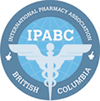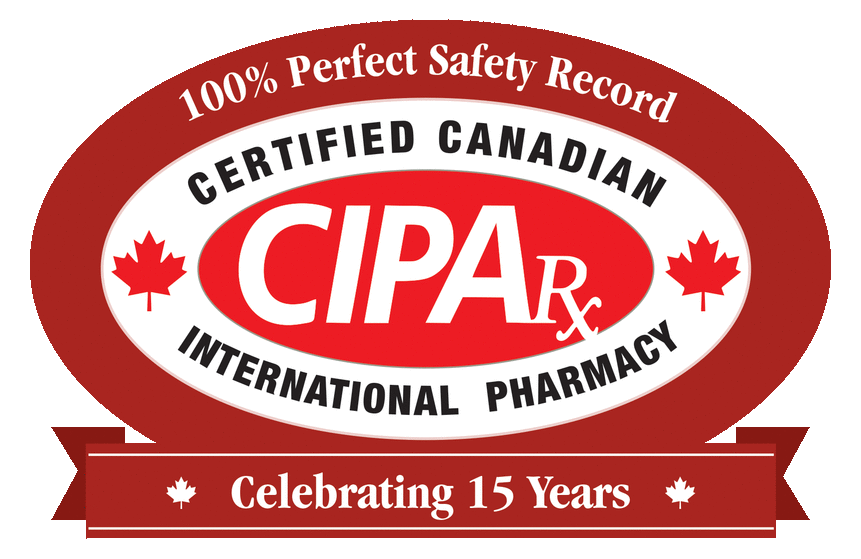
|
|||

|
|||
|
|||
|
This Better Health News issue addresses a few topics that you, our valued customers, have brought to our attention. We hope it is informative and helpful to your health.
Please feel free to forward this Better Health News newsletter to your friends and colleagues who might benefit from or be interested in some of the information provided. You can also submit any feedback you may have to [email protected] |
The Importance of Taking Medications Regularly
When a doctor prescribes medication for a patient he/ she does it with the sole reason to help their patient. However, there are many different cases in which patients do not follow their doctor’s instructions. They do not seem to realize that taking prescribed medications exactly as directed by your doctor is extremely important. Some people do not take their medications purposely. They do this to save money that they would otherwise be spending on costly medication. This applies most to the United States where the prices of medication are very high. The high prices should not take priority over one’s health as that can be extremely dangerous. There are other options such as purchasing medication from an online Canadian pharmacy which can be much more affordable. Aside from the cost of buying medication, some patients just don’t “see eye to eye” with their doctors. In these cases patients decide whether they should take the medication prescribed by their doctor and how much to take. They think they know what they are doing because they have read about what the medication does, its side effects, etc. This sort of reaction is usually out of fear or denial. If you are unsure about a certain medication, it is okay to question whether you think this medication is right for you. However, you should talk to your doctor about it and never change the directions given on your own. Not refilling a prescribed medication is also a problem. The medication should be taken for the duration of time decided by your doctor. You may or may not see the results right away. Regardless, keep taking the medication for the length of time prescribed. On the other hand some people forget to take their medication. The occasional time will not have much of an effect on your treatment, however if forgetfulness is frequent then one’s health condition can become even worse. There are many things that you can do if you just don’t seem to remember when to take your medication. For example, you could set up a daily routine and use daily dosing containers in order to eliminate forgetfulness. There are also patients that are unsure about how to take their medications and do not ask for help. You should ask your health care provider how to take your medication if you do not know how. Do not allow embarrassment to stop you from achieving better health. As you have seen there are many different situations in which patients do not take medication as prescribed. Do not let that be you! If ever the thought of not taking your medication comes to mind please remember that it will only worsen your condition. It could also have a drastic result on your health and cause you a lifetime of regret. Take your medications regularly and help yourself. |
 Call Today at 


We Proudly Accept |
Antidepressants for Treatment of Central Nervous System Disorders
Alzheimer's disease, Parkinson's disease and Multiple Sclerosis all occur through the central nervous system. These disorders are all wildly different in how they affect a person's everyday life, as Alzheimer's disease inhibits mental health, and Parkinson's disease and Multiple Sclerosis inhibit mobility. For central nervous system disorders that affect mobility, most doctors recommend physical therapy and medication for effective treatment. Central nervous system disorders that affect mental health are usually treated through medication based on the most prevalent and disturbing symptoms that are characteristic of each specific disorder. Antidepressants are used in the treatment of many central nervous system disorders, to help manage the common symptoms of depression and behavioral disturbances that are commonly associated with certain central system disorders. Antidepressants work by manipulating certain chemicals in the brain that are responsible for a person's mood and behavior. Although different types of antidepressants are composed of different medicinal ingredients causing them to all work slightly differently, each antidepressant will increase the brain levels of serotonin, the brain chemical responsible for elevated mood. Different antidepressants that are used for the treatment of central nervous system disorders such as Alzheimer's disease include bupropion (Wellbutrin), fluoxetine (Prozac), paroxetine (Paxil), fluvoxamine (Luvox), sertraline (Zoloft) and citalopram (Celexa). |
5 Precautions to Help You Avoid Heat Stroke
Heat stroke generally occurs when the body loses its ability to regulate temperature in extreme heat, at the point when the body is unable to sweat and cool down. People who are exhibiting signs of heat stroke typically display confusion, or an altered mental state. Their skin will be hot and red, and they may additionally feel nauseous and experience vomiting or diarrhea. If you suspect that someone you know is experiencing a heat stroke, get emergency medical help immediately. Although heat stroke is a definite problem during the hot summer months, it's still okay to go outside and enjoy the summer. But before you head outside and into the heat, you may want to take a few extra precautions: Be Aware – Check the weather forecast before going outside for the day, and note both the expected temperature and heat index. Once you know how hot it's going to be that day, be prepared! Bring enough sunscreen, liquids and food in your cooler to help your body stay cool all day. Drink Enough Liquids – Health professionals recommend that you drink approximately eight ounces of water or sports drinks while out in the sun. Stay away from caffeinated and alcoholic beverages during hot weather, as they will only make you thirstier and may cause dehydration. Dress Appropriately – Loose, lightweight, and light colored clothing are the best for hot days in the sun. Clothing made from cotton materials are generally recommended because of their breathable qualities. Avoid the Hottest Part of the Day – On days that are forecasted to be especially warm, schedule your outdoor activities around the peak hours of ten in the morning to three in the afternoon. Never Leave Anyone in the Car – Car temperatures can heat up by thirty degrees in twenty minutes, so never leave anyone alone in the car, including the elderly, children and pets, for any amount of time. Because heat stroke is considered to be an illness that requires immediate medical attention, when planning activities outdoors or indoors during hot weather, make sure that you know if you or any of your family members are more prone to heat stroke. Common medical conditions that raise the risk of heat stroke include heart disease, high blood pressure, diabetes and obesity. For people with any of these conditions, there's no reason to not go outdoors, just keep in mind that you may have to get out of the heat before the other people around you. |
Too Much Caffeine in Energy Drinks - Children and Teens at RiskNo sane person would let their child sit and drink ten cans of soda in a row. It's just common sense – the amount of sugar consumed would be more than unhealthy, not to mention the effect of the caffeine on their behavior. However, a surprising editorial released by the Canadian Medical Association Journal recently unveiled that certain energy drinks provide just that, the equivalent in caffeine of drinking ten cans of soda. With the increasing popularity of energy drinks among teenagers and children, this editorial brings a new concern to light – just how much caffeine are our children consuming each day? As "Caffeine-loaded energy drinks have now crossed the line from beverages to drugs delivered as tasty syrups", parents need to become more aware of the effects of caffeine, as well as its addictive qualities. Excess caffeine is known to cause nervousness, irritability, rapid heart rate and sleeplessness in children, which can stem a multitude of problems in your child's learning, behavior and health. And if the same addictive quality that causes you to crave your coffee in the morning has the same effect on your child, it's likely that those behavior, learning and health problems are only going to continue. While this editorial appeals for Health Canada to implement regulations to limit energy drink promotion among kids and teens, beverage producers argue that their marketing practices do not target children or youth. But as the debate as to whether or not beverage producers intend for their products to be consumed by children or not rages on, parents need to be aware of the caffeine content in their children's drinks, and inform their children of the harsh side effects of drinking excessive caffeine.
|


 The central nervous system, made up of the brain and spinal cord, is the control center for the human body by receiving all neurotransmissions from the sensory organs and formulating appropriate reactions to them. Although the central nervous system plays a crucial role in the function of the human body, it is vulnerable to many disorders and conditions, just like the rest of the body. There are many different disorders that can affect the functionality of the central nervous system – all of which are extremely complex and in many cases will require a series of different types of treatment from therapy to medication.
The central nervous system, made up of the brain and spinal cord, is the control center for the human body by receiving all neurotransmissions from the sensory organs and formulating appropriate reactions to them. Although the central nervous system plays a crucial role in the function of the human body, it is vulnerable to many disorders and conditions, just like the rest of the body. There are many different disorders that can affect the functionality of the central nervous system – all of which are extremely complex and in many cases will require a series of different types of treatment from therapy to medication.
 Each year, over four hundred people die from heat stroke in North America. Heat stroke is an extremely serious and life-threatening illness that can happen to anyone, although the risk for people with certain medical conditions, or who take certain medications is higher. Heat stroke is also more likely to occur in children, as their bodies are too small to properly regulate temperature.
Each year, over four hundred people die from heat stroke in North America. Heat stroke is an extremely serious and life-threatening illness that can happen to anyone, although the risk for people with certain medical conditions, or who take certain medications is higher. Heat stroke is also more likely to occur in children, as their bodies are too small to properly regulate temperature.
